Book Review: John Wark: Wark On! (Know the Score 2009)
It might be a slightly random thought but I wish that I was in Liverpool during the 1980s. I appreciate that Merseyside witnessed dramatic socio-economic upheaval during that decade, but there seemed to be something exciting that was developing in the area. Whether it was in my mind or in reality, I wish that I had been part of the spirit of Liverpool, instead of being rushing home from junior school for Dangermouse or The Real Ghostbusters on Children’s ITV.
My fascination within this decade means that I will pick up any book that references those particular years on Merseyside and those glory years of Liverpool Football Club. Anything that also mentions the sensational FA Cup Final of 10th May 1986 will also grab my attention, and my home town team of Ipswich Town Football Club.
With all these requirements, John Wark’s recently issued autobiography is the perfect book for me! This book ticks everything that I could possibly ask for! It could be a decent present for Father’s Day, if you want something exciting and different from the dodgy socks, novelty ties and aftershave that has the smell of cheap toilet freshener.
The legendary Bob Paisley believed that ‘œJohn Wark has great timing. You could set your watch by him,’ and Bobby Robson praised Wark as ‘œthe finest goal scoring midfielder of his generation.’ A conversation with Wark at a recent PFA Awards dinner provoked Steven Gerrard to garble ‘˜Oh my god’ and instinctively provide a bottle of champagne for Wark’s table. As a result of all this praise, you could possibly believe that Wark On will be nothing more than a list of stats and figures from an illustrious playing career. However, this book is an interesting insight into a player that became a household name in British football for three decades.
It soon becomes clear in the early pages that John Wark will provide a brutally honest account of himself and this book is a refreshing read. We are taken from his childhood upbringing in Glasgow during the 1960s, through his attempts to settle and eventually break into the Ipswich first team during the mid to late seventies.
Many icons of the period are referenced within this book at Portman Road, including Alan Hunter, Arnold Muhren, and Kevin Beattie. Whether you have much interest in Ipswich Town (and I have to sadly admit that not everyone has) these passages give an intimate flavour of a period in football history that has recently been in the news, when fans and commentators have reminisced about a time when the FA Cup Final meant more than just another game in British football.
Students of football from the early 1980s know that the Ipswich dream began to die after Bobby Robson took the England job in 1982. Famous players began to leave Portman Road and whilst Liverpool was clearing up the trophies at home and abroad, Ipswich finished 9th by the end of the 1982/ 1983 campaign. Striker Paul Mariner and Wark submitted a written transfer request during the following season, and Wark played his first game in a red shirt against Watford on 31st March 1984.
 It is pretty obvious that Wark was in mental torment about his move to Liverpool. He admits that ‘œLiverpool were the reigning champions and going for a hat-trick of successive league titles, so of course I wanted to join them’ but was unsure whether he would get a regular game. However, the agreements are signing at the St George’s Hotel in the city, and Wark tells us about the first eye-opening weeks around Melwood and Anfield. Throughout these chapters, Wark talks about his utmost respect for Joe Fagan for giving him the opportunity to play football at this high level.
It is pretty obvious that Wark was in mental torment about his move to Liverpool. He admits that ‘œLiverpool were the reigning champions and going for a hat-trick of successive league titles, so of course I wanted to join them’ but was unsure whether he would get a regular game. However, the agreements are signing at the St George’s Hotel in the city, and Wark tells us about the first eye-opening weeks around Melwood and Anfield. Throughout these chapters, Wark talks about his utmost respect for Joe Fagan for giving him the opportunity to play football at this high level.
We revel in Wark’s achievement to outscore Kop legend Ian Rush with a jaw-dropping 27 goals during the 1984-1985 season. Wark talks about the Heysel disaster during the European Cup Final of 1985 from the perspective of the dressing room whilst the tragic events were unfolding outside in the crumbling stadium. The writing is haunting at this point but Wark refers to the spirit of togetherness within the squad which defined the club at that dark moment as well as during the 1980s.
It is tragic to note that after Wark’s 62 appearances during his first full season at Anfield, his football is ravaged by injuries during the subsequent seasons. There is a particularly sad story associated with Wark being forced to sit on the sidelines with a ruptured Achilles whilst Liverpool (and Ian Rush) tore into Everton on a baking hot Wembley pitch during the 1986 FA Cup Final. After gradually becoming surplus to requirements at Anfield, Wark moves back to Portman Road for his second spell at Ipswich beginning in January 1988, when Town were a shadow of their former selves during the earlier part of the decade.
What comes across within the book is a true football man, who was a servant to the game for an astonishingly long period of time. Wark is still plying his trade for the Liverpool legends. He ‘œremains a Liverpool fan’ and longs for the occasion when the reds can lift the ‘œPremiership crown.’ The Liverpool bug is still within his heart.
The book finished with a little bit of commentary about Wark’s role in Escape to Victory. How many other football biographies have been able to finish off with a name check of Hollywood icons? The reference to this iconic movie from 1981 is a fitting end to an autobiography that satisfied my Ipswich fix, Liverpool fix and fix for a decade when Liverpool Football Club dominated the national and international football scene.
Check back tomorrow when we’ll have an exclusive interview with John Wark.
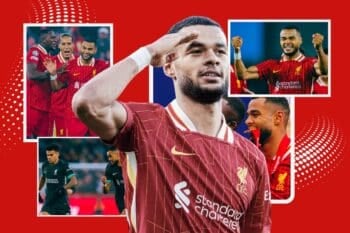









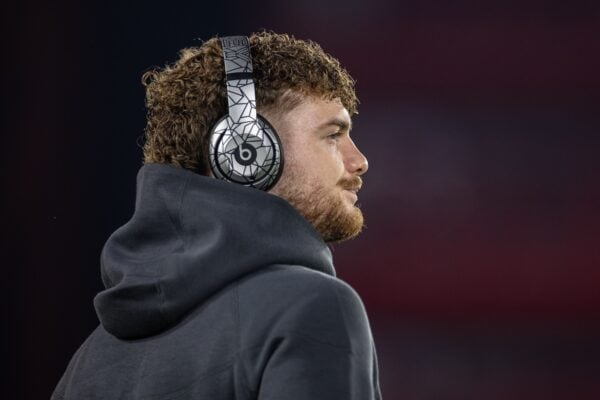
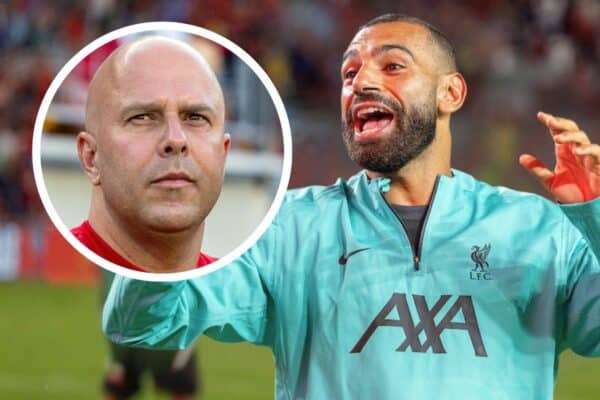


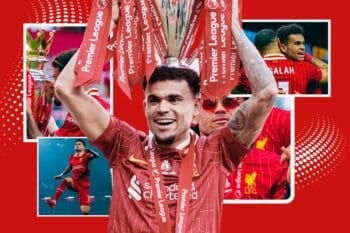
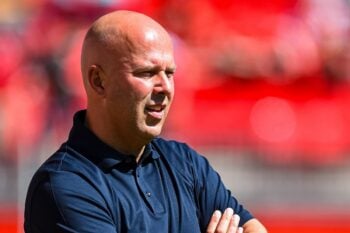
Fan Comments